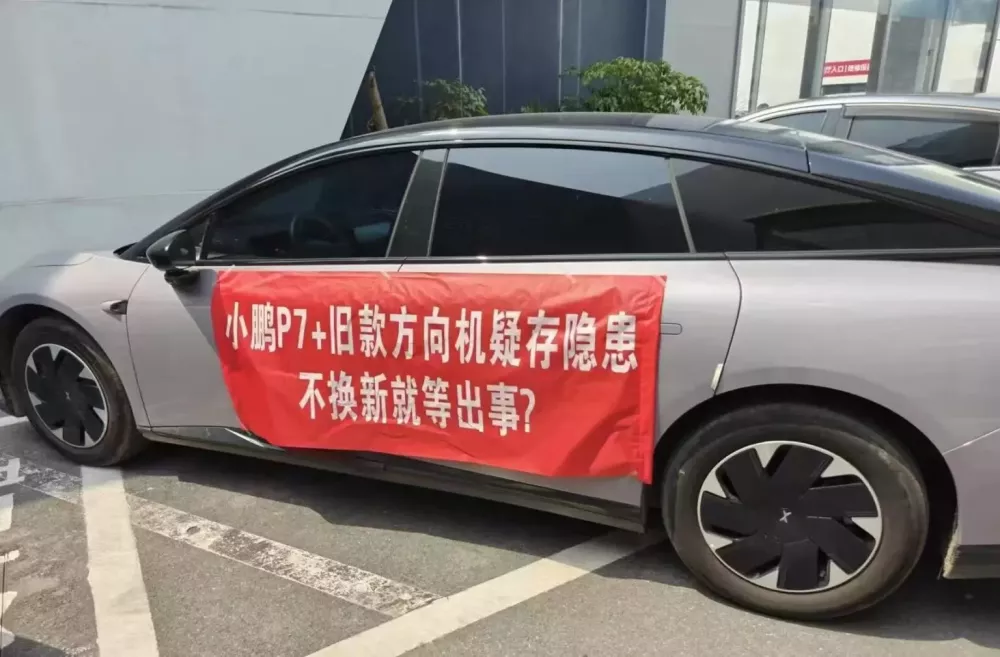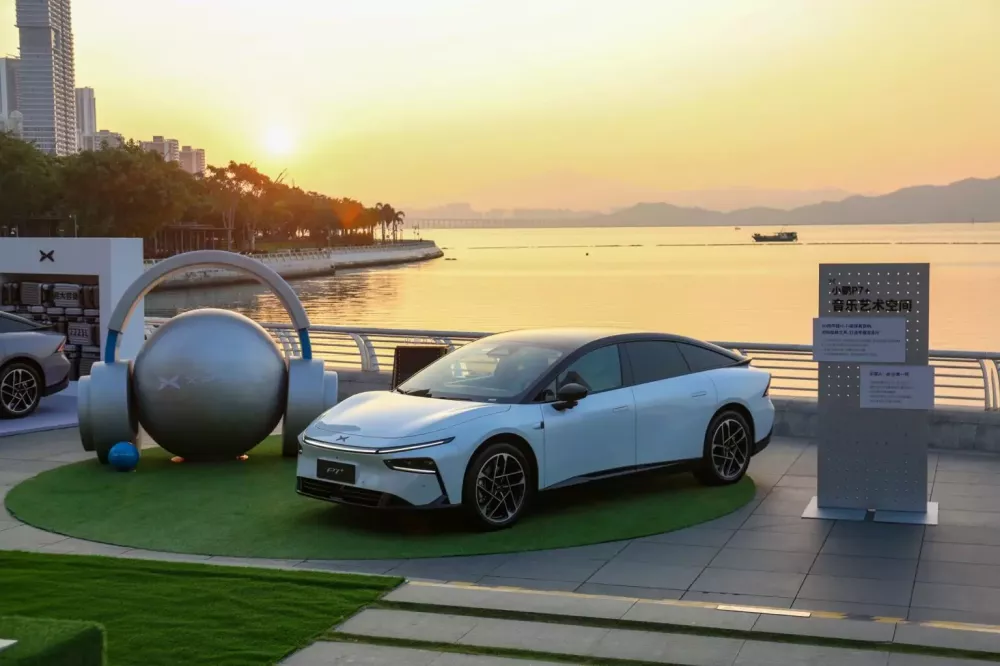Xpeng Motors is facing a wave of criticism and backlash from consumers regarding the risk of steering system failures in its P7+ electric vehicles. According to the Economic Information Daily, a publication under Xinhua News Agency, the Chinese automaker has been accused of quietly replacing defective parts instead of conducting an official recall.
The issue centers around the P7+’s electric power steering system, with numerous drivers reporting incidents of the steering wheel suddenly losing function or locking up while in motion. Despite the many complaints and evidence suggesting a widespread issue, Xpeng is alleged to be denying any systemic faults and refusing to issue a recall.

A disgruntled Xpeng P7+ owner protests with a banner on their car
An investigation by the Economic Information Daily revealed a “two-faced” strategy by the company: during periodic maintenance, technicians secretly apply sealant to the relevant parts, while only replacing the steering systems for the most vocal complainants, all the while maintaining that there is no widespread defect.
“Xpeng is gambling with our lives,” said Ms. Gan, a car owner from Shenzhen, expressing her frustration. She added that the abnormal steering wheel behavior after lane changes has made driving extremely dangerous.
What’s more concerning is that even the cars that have had their steering systems replaced continue to experience issues. One owner reported that the replacement part in their P7+ only worked for two weeks before failing again, raising doubts about the effectiveness of Xpeng’s solution.

When confronted by customers at their Guangzhou headquarters, Xpeng’s customer service manager, Lei Xiangliang, deflected responsibility, stating that the recall procedure depends on the governing body and shifting blame to the service centers instead of the parent company.
Experts suggest that Xpeng’s handling of the situation may be an attempt to circumvent China’s recall regulations. By replacing parts on a case-by-case basis, the company reduces costs and avoids scrutiny from authorities.
This controversy comes as Chinese regulators increase their oversight of over-the-air (OTA) software updates for smart vehicles. Xpeng’s “Xinghe” system has received nine major updates in less than nine months, raising questions about whether the company has properly registered these updates as required.
This is not the first time this issue has come to light. The Economic Information Daily previously reported on the incident in July and early August, indicating that the crisis is escalating.





































